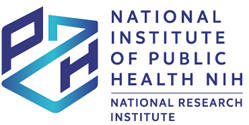ABSTRACT
In this review recent point of view concerning the molecular mechanisms of chemically induced carcinogenesis is presented. The new and promising trends of neoplasia investigations are based on discovery of protooncogenes and tumor suppressor genes, which maintain tissue homeostasis by controlling cellular proliferation and differentiation. It is generally recognised, that mutations induced by genotoxic carcinogens, particularly those resulting in activation of protooncogenes and inactivation of suppressor genes, play a crucial role in the initiation step of multistage process of tumorigenesis. Tumor promotion is recognized as a process whereby initiated cells are stimulated to selective growth and then, to develop into the cancer during progression step. Tumor promotion can be affected by many nongenotoxic carcinogens. In this review the attention is given to the mutational activation of the c-ras oncogenes and inactivation of p53 suppressor gene in rodent and human cancers by genotoxic carcinogens. Moreover, the significance of nongenotoxic carcinogens and the mechanisms by which these compounds may accelerate tumorigenesis are discussed.
You can change cookies settings in your browser. Restricted use of cookies in the browser configuration may affect some functionalities of the website.



